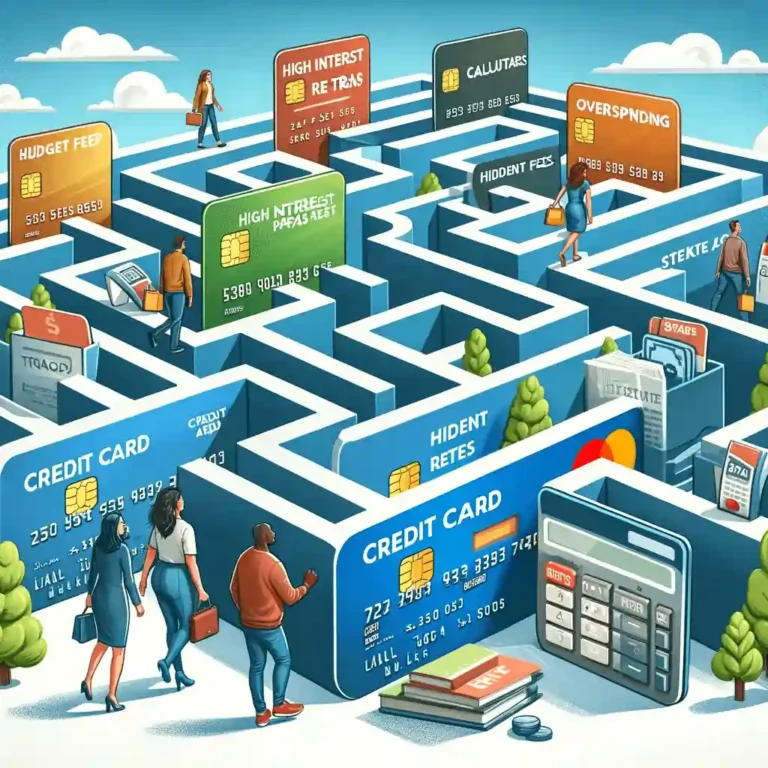Credit cards can be a useful financial tool for building a strong credit history, earning rewards, and making convenient purchases. However, if not used responsibly, they can become a source of debt and financial problems.
In this article, we will guide you through the most common credit card traps and provide you with practical tips to avoid them.
Common Traps
1. Spending more than you can afford: It is easy to fall into the temptation of spending more than you have available in your account. Remember that credit is a loan that you must repay with interest. If you only pay the monthly minimum, your debt will grow quickly and cost you more money in the long run.
2. Paying only the minimum monthly: As mentioned above, paying only the minimum monthly will cost you more money in interest. If you can, make an effort to pay your balance in full each month.
3. Not reading the fine print: Before applying for a credit card, it is important to carefully read the terms and conditions. Pay attention to interest rates, fees, and commissions.
4. Applying for too many cards: Applying for too many credit cards in a short period of time can negatively affect your credit score. Only apply for cards that you really need.
5. Using your credit card for cash advances: Cash advances typically have higher interest rates and additional fees. If you need cash, it is better to use an ATM with your debit card.
6. Not paying on time: Late payments will damage your credit score and may result in late fees. Make sure to pay your bills on time each month.
7. Not taking advantage of rewards offers: Some credit cards offer rewards such as points, miles, or cashback. If you use your card frequently, you can earn valuable benefits.
8. Not having a budget: It is important to have a budget to control your spending and make sure you are not spending more than you can afford.
9. Ignoring fraud alerts: If you notice suspicious charges on your credit card, report them to your bank immediately.
10. Not canceling cards you don’t use: Even if you don’t use a credit card, it is important to keep it open if it has a positive credit history. Closing a card can affect your credit score.
Tips to Avoid the Traps
1. Set a budget: Decide how much you can spend each month with your credit card and stick to it.
2. Compare credit card offers: Research the different options available and choose the card that best suits your needs.
3. Read the fine print: Before accepting a credit card, make sure you understand the terms and conditions.
4. Pay your balance in full each month: If you can’t pay the full balance, pay as much as you can.
5. Use your credit card responsibly: Only spend what you can afford and avoid impulse purchases.
6. Review your statements carefully: Look for any suspicious charges and report them to your bank immediately.
7. Protect your personal information: Do not share your credit card information with anyone.
8. Monitor your credit score: It is important to know how your credit score is so you can take steps to improve it.
Conclusion
Credit cards can be a useful financial tool if used responsibly. By following the tips in this article, you can avoid common traps and make the most of your credit card.


